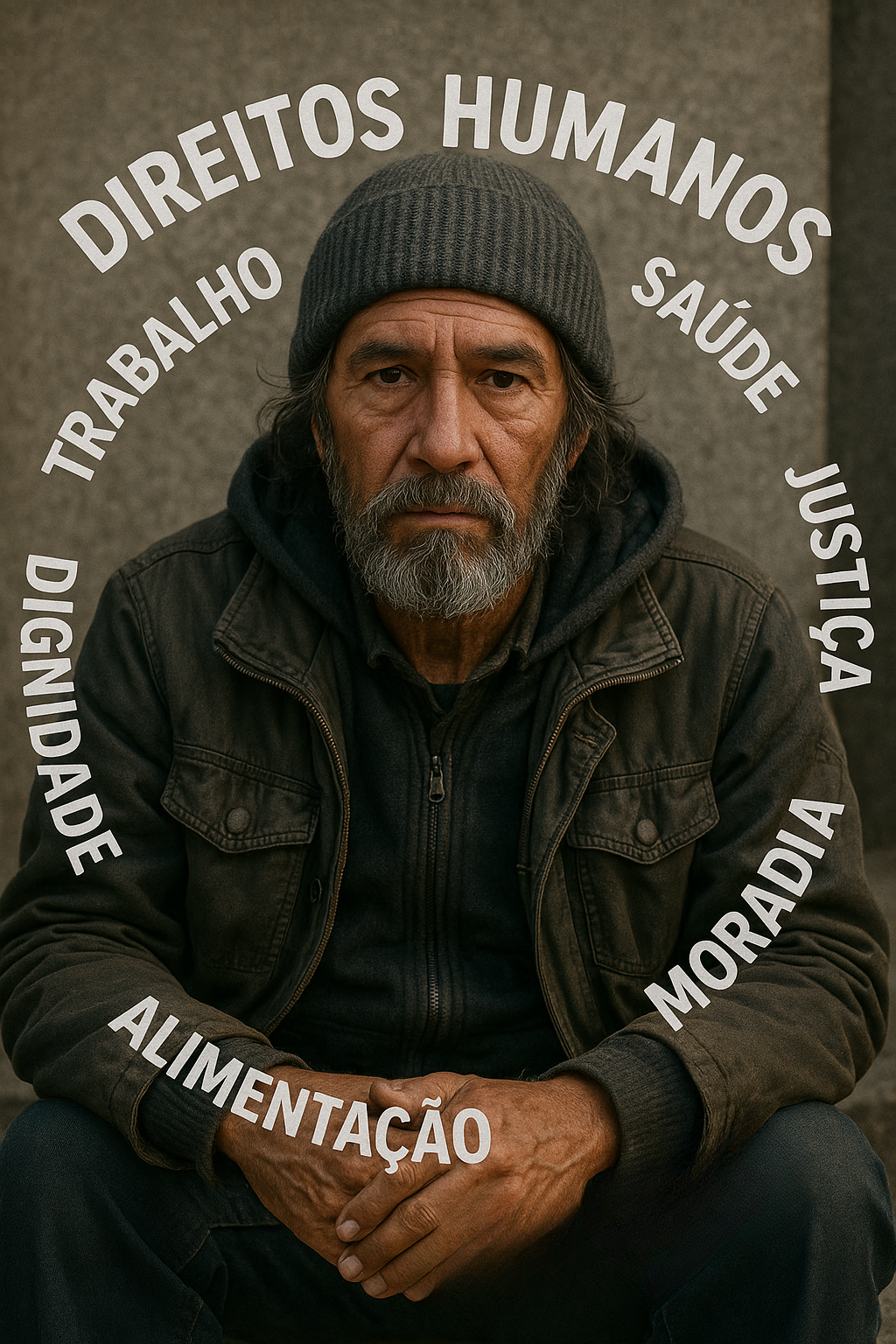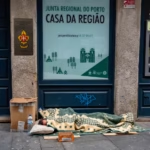In global terms, there has been a consensus that peace, in order to be lasting, must be based on social justice. Thus, all human beings have the right to achieve material well-being and spiritual development in conditions of freedom and dignity, economic security and equal opportunity (Article 2 of the International Covenant on Civil and Political Rights).aof the Declaration of Philadelphia of 1944).
At the constitutional level, the social order is based on the primacy of labour and its objective is social welfare and justice (article 193 of the Constitution). For this to be achieved, social rights must be enforced, which include education, health, food, work, housing, transport, leisure, security, social security, maternity and childhood protection and assistance to the helpless (Article 6 of the 1988 Constitution).
Even the economic order, based on valuing human labour and free enterprise, aims to ensure a dignified existence for all, in accordance with the dictates of social justice (article 170 of the Constitution).
It should be noted that social security, as a system of protection that includes health, social security and social assistance (article 194 of the Federal Constitution of 1988), is in fact essential for the realisation of the fundamental objectives of the Federative Republic of Brazil, which are:
To build a free, just and caring society; to guarantee national development; to eradicate poverty and marginalisation and reduce social and regional inequalities; to promote the good of all, without prejudice to origin, race, sex, colour, age or any other form of discrimination. 1..
Article 3 of the 1988 Constitution
International sphere
The 1948 Universal Declaration of Human Rights states that every human being has the right to social security and to the realisation of the economic, social and cultural rights indispensable to his dignity and the free development of his personality (article 22).
Confirming the relevance of this precept, according to Sustainable Development Goal 3 of the United Nations 2030 Agenda, a healthy life and well-being for all at all ages must be ensured.
The Declaration of Philadelphia of 1944, inserted as an annex to the Constitution of the International Labour Organisation, when dealing with fundamental principles, states that poverty, wherever it may be, constitutes a danger to general prosperity (Article 1), c).
In line with the above, according to Sustainable Development Goal 1 of the United Nations 2030 Agenda, poverty in all its forms must be ended everywhere.
Social assistance and the PopRua policy
Social assistance, specifically, must be provided to those who need it, regardless of social security contributions 2. In the organisation of social assistance services, programmes must be created to support, among others, people living on the streets (article 23, § 2, item II, of Law 8.742/1993).
More recently, Law 14.821/2024 established the National Policy for Decent Work and Citizenship for the Homeless (PNTC PopRua). It is designed to promote the human rights of homeless people to work, income, professional qualifications and higher education (Article 1 of the law).
The homeless population is considered to be a heterogeneous group of people who share a common lack of housing and use public places as a place to live and make a living, as well as institutional shelters for occasional or temporary overnight stays. This condition may be associated with other vulnerabilities such as poverty and broken or weakened family ties.
Decent Work
Within the framework of the International Labour Organisation, the Decent Work Agenda has the following strategic objectives: to promote employment by creating a sustainable institutional and economic environment; to adopt and expand social protection measures (social security and worker protection) that are sustainable and adapted to national circumstances; to promote social dialogue and tripartism; and to respect, promote and apply fundamental principles and rights at work (Declaration on Social Justice for an Equitable Globalisation, 2008).
Along these lines, in line with Sustainable Development Goal 8 of the United Nations 2030 Agenda, sustained, inclusive and sustainable economic growth, full and productive employment and decent work for all must be promoted.
PopRua's principles and guidelines
The principles of the National Policy for Decent Work and Citizenship for the Homeless (PNTC PopRua) are:
I - respect for dignity of the human personII - valuing and respecting life and citizenship; III - establishing the conditions for decent workIV - articulation between work, education and development; V - environmental sustainability; VI - humanised and universalised care; VII - social participation and control; VIII - the right to family life and the search for community integration; IX - transparency in the execution of programmes and actions and in the application of the resources earmarked for them; X - respect for social conditions and differences of origin, race, age, nationality and religion, with special attention to people with disabilities or comorbidities and single-parent families with children; XI - promotion of equal opportunities and non-discrimination.
Article 2 of Law 14.821/2024.
The guidelines of the National Policy for Decent Work and Citizenship for the Homeless (PNTC PopRua) are:
I - the provision of conditions for financial autonomy and the fight against poverty, through redistributive programmes, increased schooling, professional qualifications and the promotion of broad, safe and simplified access to work and income;
II - taking into account the heterogeneity of the street population, especially in terms of educational level, health conditions, age group, origin and relationships with work and the family;
III - promoting actions to combat prejudice, discrimination and violence against homeless people in the workplace;
IV - ensuring that access to work and income is cross-cutting and territorially articulated with other sectoral public policies in areas such as health, social assistance and housing;
V - the relationship between work and housing, with the adoption of strategies that focus on the immediate access of the homeless population to housing as a way of guaranteeing sustainable insertion into the world of work;
VI - respect for the singularities of each territory, including the traditional communities present there, and the utilisation of local potential and resources in the drafting, implementation, follow-up and monitoring of the public policy instruments provided for in the PopRua PNTC;
VII - strengthening and encouraging associations, cooperatives and self-management of solidarity economy ventures for people living on the streets;
VIII - work as a possible means of harm reduction, including those associated with the problematic use of alcohol and other drugs, provided that the self-determination of homeless people is respected;
IX - coordinating actions to overcome homelessness;
X - integrating the efforts of the public authorities and civil society to draw up, implement and monitor the initiatives provided for in Law 14.821/2024;
XI - responsibility of the public authorities for its preparation and financing (Article 3 of Law 14.821/2024).
Support Centres (CatRua)
Public authorities in all federal spheres that adhere to the National Policy for Decent Work and Citizenship for the Homeless (PNTC PopRua) must set up a network of Support Centres for Homeless Workers (CatRua) to provide assistance to homeless people seeking professional guidance and entry into the labour market (article 6 of Law 14.821/2024). 3).
The Support Centres for Homeless Workers (CatRua) must, in conjunction with social assistance services, carry out active searches for homeless workers who are in public places, through itinerant actions carried out in the territory on a continuous basis and in conjunction with the social assistance network (article 7, paragraph 4, of Law 14.821/2024).
Integration
The public authorities must build flows to integrate the databases relating to the services of the Unified Social Assistance System (Suas) and the Unified Health System (SUS) that assist homeless people, in order to subsidise the work of the Support Centres for Homeless Workers (CatRua), with due respect for the privacy of individuals and families, in the form of Laws 12.527/2011 (Access to Information Law) and 13.709/2018 (General Personal Data Protection Law).
The facilities of the Unified Social Assistance System (Suas) must adopt the necessary actions to guarantee homeless people access to the labour market, taking into account their specificities and diversity (article 9 of Law 14.821/2024).
Bags
Public authorities in all federal spheres that adhere to the National Policy for Decent Work and Citizenship for Homeless People (PNTC PopRua) must set up financial incentive grants for homeless people taking part in professional qualification courses and seeking to improve their education, called Qualification Grants for Work and Education for Homeless People (QualisRua Grants) (article 12 of Law 14.821/2024).
The QualisRua scholarships consist of a cash transfer policy conditional on carrying out qualification, training, vocational training and higher education activities, and aim to give special attention to homeless workers and students, in order to guarantee the conditions for them to remain in learning environments.
Receipt of the QualisRua grants during the course of the activities described above by PNTC PopRua beneficiaries will be cumulative and will not prevent or suspend the receipt of benefits from other cash transfer programmes or aid from any federal entity. 4).
QualisRua scholarships can be linked to the exercise by their beneficiaries of occupational training activities carried out and taught directly by public bodies of the direct or indirect public administration or by partner entities, with the prohibition of any unhealthy activity, under the terms of current labour regulations.
QualisRua grants should enable homeless people to remain in the learning or professional training environment, as well as subsidising food and travel costs related to course activities, training and the school environment.
The criteria for awarding QualisRua Scholarships, their duration and discontinuation must be laid down in a regulatory decree.
Professional qualification and student assistance
In order to ensure that homeless people remain in professional qualification courses, the National Policy for Decent Work and Citizenship for the Homeless (PNTC PopRua) must create the conditions to offer financial aid in the form of Law 14.821/2024, without prejudice to other available grants and aid.
The state and educational institutions must provide pedagogical support and student assistance to homeless people (article 15 of Law 14.821/2024).
Student assistance must be articulated with the social assistance network and other public policies and include active search and systematic monitoring, including of the families of homeless people.
The services of the Unified Social Assistance System (SUAS) must act in an integrated manner with education policy to guarantee the right to education of the homeless population, taking into account their entry and permanence in educational institutions (article 17 of Law 14.821/2024).
Immediate access to housing
The National Policy for Decent Work and Citizenship for Homeless People (PNTC PopRua) must guarantee immediate access to housing for beneficiaries, through housing policies or specific programmes for homeless people. The aim is to promote sustainable access to work, while respecting the autonomy and self-determination of homeless people (article 21 of Law 14.821/2024).
If it is impossible to comply immediately with the above provisions, the public authorities must, on a subsidiary and provisional basis, guarantee homeless people and their families fixed places in the social assistance network, preferably in more autonomous and private forms of temporary accommodation. This temporary shelter must be linked to the beneficiary's future participation in public policies for access to housing.
Social Security
The National Social Security Institute (INSS) must guarantee speed and priority in analysing the cases of homeless people. In addition, it must facilitate access for this population to applications for retirement, pensions and benefits, without making requests conditional on the presentation of proof of residence (article 22 of Law 14.821/2024).
To make it easier for the homeless population to access these applications, the INSS can carry out itinerant actions in areas with a high concentration of homeless people.
Basic income
The homeless population must be prioritised in the process of gradually implementing the basic citizenship income, under the terms of Law 10.835/2004 (article 23 of Law 14.821/2024).
In this respect, the International Labour Organisation should promote programmes among states aimed at extending social security measures. In order to ensure a basic income for all those in need of such protection, as well as full medical care (Article 3(f) of the Declaration of Philadelphia)5).
Coordination between federal entities
The National Policy for Decent Work and Citizenship for the Homeless (PNTC PopRua) must be implemented in a decentralised manner. It must be articulated between the Union, the states, the Federal District and the municipalities that adhere to it by means of their own instrument (article 35 of Law 14.821/2024).
The federal entities that adhere to the National Policy for Decent Work and Citizenship for the Homeless Population (PNTC PopRua) must prioritise the registration of homeless people in the National Policy for Decent Work and Citizenship for the Homeless Population (PNTC PopRua). Single Registry for Social Programmes of the Federal Government (CadÚnico), referred to in article 6-F of Law 8.742/1993, by means of referral to the Unified Social Assistance System (SUAS), in accordance with the regulations (article 35, § 2, of Law 14.821/2024).
It is therefore important to monitor the regulation of this important piece of legislation in order to protect and promote the dignity of the human person, recognised as the foundation of the democratic state of law (Article 1, III of the Constitution).
by Gustavo Filipe Barbosa Garcia. Originally published in Legal Adviseron 1 February 2024.
- GARCIA, Gustavo Filipe Barbosa. Social security law course: social security. 8. ed. São Paulo: Saraiva, 2024. p. 53-55[↩]
- The objectives of social assistance are: I - the protection of the family, maternity, childhood, adolescence and old age; II - the support of needy children and adolescents; III - the promotion of integration into the labour market; IV - the habilitation and rehabilitation of people with disabilities and the promotion of their integration into community life; V - the guarantee of a minimum monthly wage to disabled and elderly people who prove they do not have the means to provide for their own maintenance or to have it provided for by their family, as laid down by law (continued benefit); VI - the reduction of the socio-economic vulnerability of families in a situation of poverty or extreme poverty (art. 203 of the 1988 Federal Constitution[↩]
- The duties of the Support Centres for Homeless Workers (CatRua) are, without prejudice to subsequent regulations: I - to capture, register and offer unemployed and homeless workers vacancies for reinsertion into the labour market; II - to capture, register and refer homeless people to vacancies for professional qualification; III - to guarantee homeless people access to the National Programme for Access to Technical Education and Employment (Pronatec) and the National Employment System (Sine); IV - facilitating and assisting the issue of duplicate documents such as the General Register (RG), birth certificate and marriage certificate, as well as registration in the Individual Taxpayer Register (CPF), for people living on the streets; V - facilitating the issue of a Labour and Social Security Card (CTPS) for people living on the streets; VI - provide labour and social security guidance services to homeless people; VII - provide information, advice and guidance to employers on the need for support and adaptations to the work environment for homeless workers; VIII - carry out support actions for homeless people in workplaces, in education or training, in the development of socio-emotional and relational skills and in monitoring the process of insertion and continuity in the work environment, according to the individual needs of each homeless worker; IX - indicate to the managing public body possible beneficiaries of the Qualification Scholarships for Work and Education of the Homeless Population (QualisRua Scholarships), referred to in art. 12 of Law 14.821/2024 (art. 7)[↩]
- The Bolsa Família Programme was established under the Ministry of Development and Social Assistance, Family and Fight against Hunger, aimed at the direct and conditional transfer of income (Law 14.601/2023).[↩]
- Within the scope of social rights, every person in a situation of social vulnerability will have the right to a basic family income, guaranteed by the government in a permanent income transfer programme, the rules and requirements for access to which will be determined by law, with due regard for fiscal and budgetary legislation (art. 6, sole paragraph, of the Federal Constitution of 1988, included by Constitutional Amendment 114/2021).[↩]













